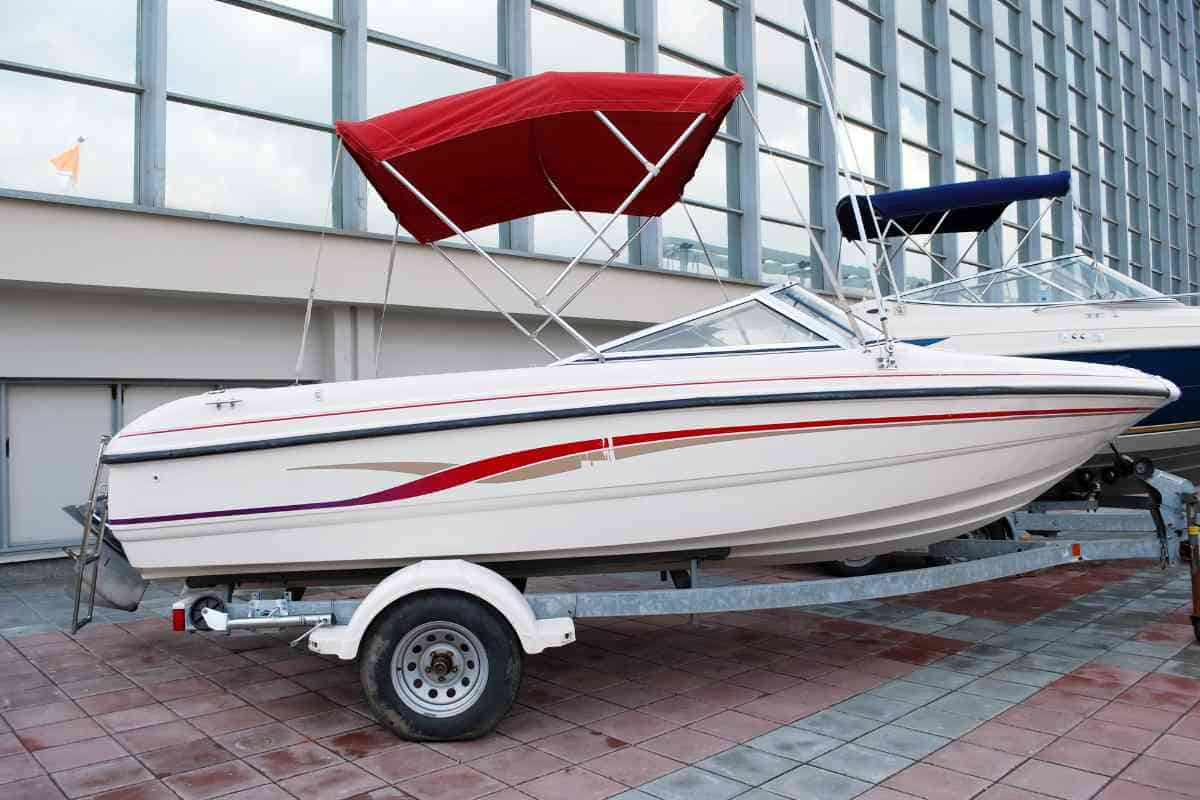What Boats Need to be Registered: A Quick Guide
Boating is a popular pastime enjoyed by millions of people around the world. However, it’s important for boat owners to be aware of the regulations surrounding boat registration. Registering a boat is a legal requirement in many countries and failing to do so can result in hefty fines and even legal action.

What boats need to be registered?
In general, boats that are used for commercial purposes, such as fishing or transportation, are required to be registered. Additionally, boats that are over a certain size or horsepower may also need to be registered.
The rules and regulations surrounding boat registration can vary depending on the country and state.
It’s important for boat owners to check with their local government agencies to determine the specific requirements for their area.
Overview of Boat Registration
Boat registration is a legal requirement in most states and countries. It is a way for governments to keep track of boats and ensure they are being operated safely and responsibly. Registration requirements vary depending on the type and size of the boat, as well as the state or country in which it is being operated.
In general, boats that are powered by motors or sailboats with a mast taller than a certain height are required to be registered. Kayaks, canoes, rowboats, and other non-motorized boats are usually exempt from registration requirements.
When registering a boat, owners must provide information such as the boat’s make, model, and serial number, as well as proof of ownership and payment of registration fees. The registration number and decals must be displayed on the boat as proof of registration.
Some states also require boats to be inspected before they can be registered.
Boat registration serves several purposes. It helps law enforcement agencies identify stolen boats and return them to their rightful owners. It also provides a way to track boats that have been involved in accidents or other incidents.
Additionally, registration fees are often used to fund boating safety programs and other initiatives aimed at protecting the environment and promoting responsible boating practices.
Boat registration is a legal requirement in most states and countries for all boats, including motorized and non-motorized boats. It is a process of providing a unique registration number to a boat and recording its ownership information with the relevant authorities.
Title and Registration Number
When a boat is registered, the owner is issued a title and registration number. The registration number is a unique identifier that must be displayed on both sides of the bow of the boat. The registration number is used to identify the boat and its owner for law enforcement purposes. The registration number must be displayed in a specific format that varies by state or country.
Registration Decals
Registration decals are issued to the boat owner along with the registration number. The decals must be affixed to the boat in a visible location, usually on the port (left) and starboard (right) sides of the boat. The decals serve as a visual indication that the boat is registered and help law enforcement officers quickly identify registered boats.
Certificate of Number and Number Card
When a boat is registered, the owner is issued a certificate of number and a number card. The certificate of number is proof of registration and must be carried on board the boat at all times. The number card contains the boat’s registration number and must be carried on board the boat as well. The number card is used to help law enforcement officers quickly identify registered boats.
Boat registration is important for several reasons. It helps to ensure that boats are operated safely and responsibly, and it helps to protect the environment by ensuring that boats meet certain safety and pollution standards. Additionally, boat registration helps to deter theft and aids in the recovery of stolen boats.
Federal Requirements

Boat registration is a requirement by law in the United States. The registration process is overseen by the United States Coast Guard (USCG) and is governed by federal laws. The following are the federal requirements for boat registration:
- All motorized boats must be registered with the USCG.
- All boats that are used in navigable waters of the United States must be registered with the USCG.
- All boats that are used for commercial purposes must be registered with the USCG.
- All boats that are more than 5 net tons must be registered with the USCG.
It is important to note that not all boats need to be registered with the USCG. The following are the boats that are exempt from registration:
- Boats that are less than 5 net tons.
- Boats that are used exclusively for racing.
- Boats that are owned by the government.
- Boats that are documented with the USCG.
It is important to comply with the federal requirements for boat registration to avoid penalties and fines. Failure to comply with the registration requirements can result in fines up to $10,000 and the seizure of the boat.
State Requirements
Each state has its own requirements for boat registration. However, there are some general requirements that most states follow.
Firstly, the boat must be used on public waters. This means that if you are using your boat on a private lake, you may not need to register it. However, if you plan to use your boat on any public waterway, you will need to register it.
Secondly, the boat must meet certain size requirements. In most states, boats that are longer than a certain length or have a certain amount of horsepower must be registered. The exact requirements vary by state, so it’s important to check with your local boating authority.
Thirdly, you will need to provide proof of ownership. This can be done by presenting a bill of sale or other documentation that shows you are the legal owner of the boat.
Finally, you will need to pay a registration fee. The fee varies by state and is usually based on the length of the boat. In some states, there may also be additional fees for things like renewing your boat registration or transferring ownership of the boat.
It’s important to note that some states may have additional requirements, such as safety inspections or boater education courses. Be sure to check with your local boating authority to ensure that you are meeting all the necessary requirements for your state.
Exemptions
Not all boats need to be registered. The following are some of the exemptions:
- Boats that are less than 14 feet in length and not powered by a motor. This means that non motorized boats do not need to be registered if they are under 14 feet long, but this may vary from state to state.
- Boats that are used exclusively on private ponds or lakes.
- Boats that are owned by the federal government.
- Boats that are used exclusively for racing and not for hire.
It is important to note that even if your boat is exempt from registration, you may still be required to obtain other permits or licenses depending on your location and intended use. For example, if you plan to fish, you may need to obtain a fishing license.
Additionally, if you plan to operate your boat in a state park, you may need to obtain a park permit.
It is always best to check with your local authorities to ensure that you are in compliance with all applicable laws and regulations.

Penalties for Non-Registration
Boat registration is required by law in many states and countries. Failing to register your boat can result in serious penalties. The penalties for non-registration vary depending on the jurisdiction, but they can include fines, impoundment of the vessel, and even criminal charges in some cases.
In some states, the fines for non-registration can be quite steep. For example, in New York, the fine for operating an unregistered boat can be up to $250.
In addition to the fine, the boat may be impounded until it is registered. If the owner fails to register the boat within a certain period of time, the boat may be sold at auction to cover the costs of impoundment and storage.
In other states, the penalties for non-registration may be even more severe. In Florida, for example, operating an unregistered vessel can result in a criminal charge. If convicted, the owner may face fines, community service, and even jail time. In addition, the vessel may be impounded and sold at auction to cover the costs of impoundment and storage.
It is important to note that the penalties for non-registration are not limited to the owner of the boat. If a person operates an unregistered boat, they can also face fines and other penalties. Therefore, it is important to ensure that your boat is properly registered before operating it.
How to Register Your Boat
To register your boat, you will need to fill out a registration form and pay a registration fee. The fee varies by state and is typically based on the length of the boat. You will also need to provide proof of ownership, such as a bill of sale, and a hull identification number. Once you have registered your boat, you will receive a registration decal that must be displayed on your boat. This decal shows that your boat is properly registered and helps law enforcement officials identify your boat if it is stolen or involved in an accident.
Out-of-State Boats
If you have recently moved to a new state and have brought your boat with you, you will need to register it in your new state. You may be able to transfer your registration from your old state to your new state, but this can vary by state. If you are visiting another state with your boat, you may need to obtain a temporary registration or permit to operate your boat in that state. Check with the state’s boating authorities to determine the requirements.
Hull Identification Number
All registered boats must have a hull identification number (HIN). This number is a unique identifier that is used to track the boat’s ownership and history. The HIN is typically located on the transom of the boat and can be used to identify the boat if it is stolen. In summary, boats with motors must be registered in most states, and sailboats and non-motorized boats may also need to be registered if they are over a certain length. To register your boat, you will need to fill out a registration form, pay a fee, and provide proof of ownership and a hull identification number. If you are visiting another state with your boat, you may need to obtain a temporary registration or permit.
Frequently Asked Questions
Am I required to register my boat?
Yes, in most cases, you are required to register your boat. The requirements vary by state, but generally, any boat with a motor must be registered. Some states also require registration for sailboats and other types of watercraft. Check with your state’s boating agency for specific requirements.
I made my own boat. What do I do about registration and titling?
If you made your own boat, you will need to obtain a hull identification number (HIN) from the Coast Guard. Once you have a HIN, you can register and title your boat with your state’s boating agency.
What Kind of Boat Must Be Registered?
Generally, any boat with a motor must be registered. Some states also require registration for sailboats and other types of watercraft. Check with your state’s boating agency for specific requirements.
Where Do I Register My Boat?
You can register your boat with your state’s boating agency. Some states also allow you to register your boat at certain marinas or other boating-related businesses.
What if my registration has expired?
If your registration has expired, you will need to renew it as soon as possible. Some states may charge a late fee if you renew your registration after it has expired.
What do I do with the registration certificate, number, and decal?
You should keep your registration certificate and number on board your boat at all times. You should also affix your registration decal to your boat in a visible location.
How long are the registration and title good for, and how much do they cost?
The length of time that a registration and title are good for varies by state. The cost also varies by state and by the size and type of boat. Check with your state’s boating agency for specific information.
What should I do if I lose my registration or title?
If you lose your registration or title, you should contact your state’s boating agency as soon as possible to obtain a replacement.
Do I have to register my boat trailer?
In most cases, yes, you must register your boat trailer. Check with your state’s motor vehicle agency for specific requirements.
Do I need insurance verification on my boat before I register it?
Some states require proof of insurance before you can register your boat. Check with your state’s boating agency for specific requirements.
My boat is pre-1972. How do I obtain a hull identification number to register my boat?
You can obtain a HIN from the Coast Guard by submitting an application and supporting documentation. Check the Coast Guard’s website for specific information.
Can I keep the same registration numbers that the previous owner had on the boat?
In most cases, no. When you register a boat, you will be assigned a new registration number. Check with your state’s boating agency for specific requirements.
Conclusion
In conclusion, boat registration is a crucial legal requirement in most states and countries. It serves multiple purposes, ensuring the safety and responsible operation of boats, tracking stolen or involved boats, and funding important initiatives for boating safety and environmental protection.
When registering a boat, owners must provide essential information such as make, model, and serial number, along with proof of ownership and payment of registration fees. The boat is then assigned a unique registration number and issued registration decals that must be visibly displayed as proof of registration.
Boat registration requirements vary by jurisdiction and often depend on factors such as boat type, size, and propulsion method. Motorized boats and sailboats above a certain height are typically required to be registered, while non-motorized boats like kayaks and canoes are often exempt.
In the United States, boat registration is overseen by the United States Coast Guard (USCG), with federal requirements mandating registration for motorized boats, commercial boats, and those used in navigable waters or exceeding 5 net tons. Failure to comply with federal registration can result in significant fines and boat seizure.
State requirements for boat registration also exist, with variations among states regarding size, usage on public waters, proof of ownership, and registration fees. Some states may impose additional requirements such as safety inspections or boater education courses.
Certain exemptions from boat registration exist, including boats under a specific length, boats used exclusively on private ponds or lakes, government-owned boats, and boats used solely for racing. However, even exempted boats may require other permits or licenses depending on the location and intended use.
Non-registration of a boat can lead to penalties, which vary by jurisdiction but can include fines, impoundment of the vessel, and even criminal charges in some cases. Penalties are not limited to boat owners; individuals operating unregistered boats can also face consequences.
To register a boat, owners must typically complete a registration form, pay the required fee, and provide proof of ownership and a hull identification number. If moving to a new state or visiting another state with a boat, registration transfer or temporary permits may be necessary.
The hull identification number (HIN) is a unique identifier assigned to registered boats, located on the transom. It helps track ownership and boat history, serving as an essential tool in identifying stolen boats.
In summary, boat registration is a crucial process to ensure safe and responsible boating practices, enable law enforcement to track boats, and support initiatives for boating safety and environmental protection. By complying with registration requirements, boat owners contribute to the overall well-being of the boating community and help maintain the integrity of marine environments.
